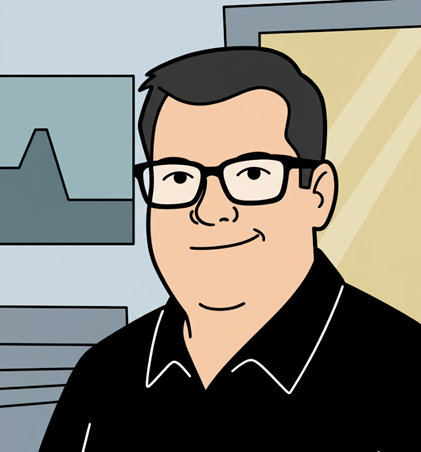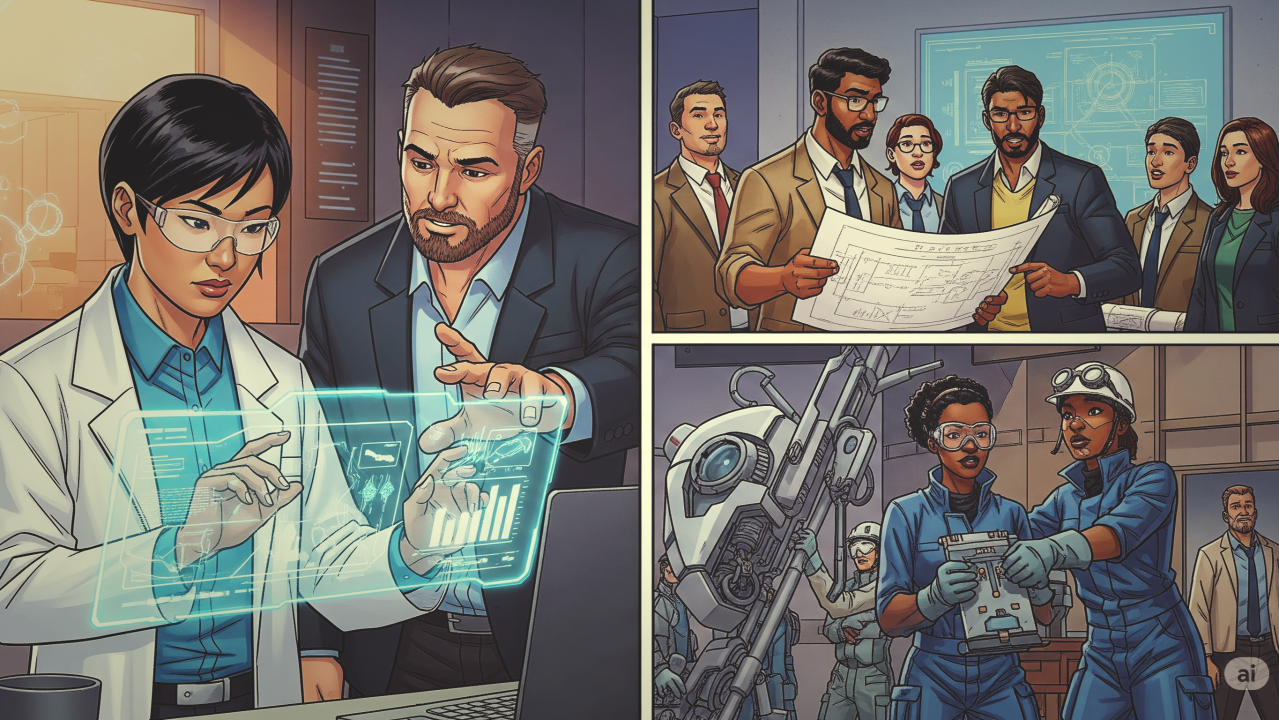This article was originally published on LinkedIn.
I was chatting with a colleague yesterday and was informed that using hashtags is no longer en vogue. So be it. I am officially old. The great thing about being old is that you get more leeway in what you say and how you say it. And I'm here today to kick ass and chew bubble gum, and I'm all out of gum.
Let's get started on the important stuff. If you're still angry or grieving, it isn't time yet to read this post. If you're fighting the system, you may not be ready to read this yet. And that's okay. Everyone processes differently, everyone deserves space and time to reflect and understand that their metal model has been upended. Go ahead and navigate away now: go read something else that makes you happy. Get out for a walk. Watch something funny. Come back when you're ready. This article will still be here.
Still thinking about it?
Okay, if you're still here, let's go.
The rest of this is about action. You've probably gotten a lot of advice from professionals who have been brought in to help you transition. That's awesome, you should definitely listen to what they say, and read everything they give you. I'm here to supplement that knowledge and give you some personal perspective.
Context. I left the Department in 2017 after working the Washington-side of the Afghanistan management desk. I had been working Afghanistan issues or other really tough problems since my first TDY out there alongside some eDiplomacy folks in 2009. I was tired and burnt out. If you ever catch me at a conference or event, I'm happy to swap stories. Like most, I've got a book of them. Needless to say, after 15 years in the Department, doing everything from sitting on a tarmac with a classified pouch waiting for an Under Secretary to working for the Deputy Secretary of State as part of the Quadrennial Diplomacy and Development Review, I did and saw a lot, and I was ready to do something else.
You are not prepared
I'm a gamer. I've been a gamer since before gaming was cool. I wrote for the tabletop roleplaying game industry. My first software development job was as a game systems developer and designer. Naturally, I love game analogies. When Blizzard released The Burning Crusade, a character turned a phrase into a meme. It always stuck with me because it was not a warning.
It was a challenge. What is to come will be hard. You must be prepared.
Everything in your transition must center on the concept that you are not prepared. Again, as a challenge. More commonly, the phrase you'll hear these days is being comfortable being uncomfortable. Figure out the wording that works best for you. This is your center, this is your mantra. This is also the dynamism that kept the United States in a leadership position, which tipped the scales in our favor in World War I and World War II. It's the same perspective that brought down the Berlin Wall and saw the end of the Soviet Union through peaceful means.
Doing what you need to do to be prepared is who you are. And I know that because of the type of people the Department brought together. Resilient. Creative. Agile. Smart. You got this.
Your journey in four parts
I'm going to eventually break these out into different articles. For now, though, we'll start with what you need to be working on. Chances are, you've already gotten some of this underway. If so, great! Again, what is shared here should be taken in addition to all of the resources you can tap into. I pulled this approach together because I am a hiring manager, I am an executive working in industry, I am a State alum, and I know how quickly the landscape is changing.
Your Resume
Your resume is meaningless. Now that the bandage is ripped off, let me clarify. A resume today in a world of AI-slop, fake and disinformation, and massive realignments in white collar professions means that your resume serves one purpose. It is your whiteboard. A place to sketch ideas, to wrap words around who you are and what value you can bring to an employer. The only purpose a resume serves today is to get through the AI-driven talent system so you can speak to a real human. Your goal becomes to meet that compliance requirement and also use the resume as a tool to refine and guide you.
The bottom line. In less than two pages, you need to tell how you create value, give them data-driven examples of where you did that in similar circumstances, and how you are the right person with all the right skills to match the job. In theory, pretty easy. In practice, this will require you to adopt a continuous improvement process.
Your Skills
Knowing how to do things has never been more important. Only the most senior people at the largest (or oldest) organizations have support staff. Especially in technology companies, doing things has been the order of the day for a long time now. And we have never been in a time when it has been easier to learn and access the resources you need to pick up the hard skills.
Coding? It's nearly expected. Managing people through systems like Objectives and Key Results (OKRs)? Baseline. Data analysis? Do you use Excel with the Data Science plugin, Databricks, Pandas, or R? AI? Well, you may not need to know the math behind it, but you'd better be sure you know how you can use it to improve your workflows to get the best results with minimum effort.
Knowing how to do tactical daily things isn't just expected, it's baseline. Figuring out how to do what you do better, faster, more efficiently, and critically less expensively will put you in a good position. Running projects, tasks, and work to completion, managing your calendar, coordinating meetings and discussions. These are expectations; they should be obvious in what you do and how you do it.
Your Portfolio
This is half of where that value that used to be wrapped up in a good resume moved to: a good portfolio. The ability to generate value is critical in any conversation in today's markets. The more you can explain it, point to it, show it off and demonstrate it, the more powerful the impact when you finally do talk with a human.
Do you know how to use git? Do you know what GitHub or GitLab is? It isn't just for technologists. Ben Balter made a career out of first teaching the White House how to use it for policy, and then showing others how to use it for open, transactional writing.
If you're more on the creative side, do you know how to use Adobe's portfolio tool, or set up your own portfolio site? Do you know how to publish PDFs of your work to LinkedIn? There are places and ways to put examples out there as portfolio items.
The absolute minimum is to start writing about how you help create the value others are seeking on LinkedIn, Substack, Medium, or if you're really into pushing yourself, setting up a Writebook from the team at 37signals and Once. In fact, you should be writing, every day. There's a good chance you might have done that; finding your own voice and reinforcing the individual aspect of you will be the goal here.
Your portfolio will carry an outsized impact on your ability to continue to talk with people who have opportunities to connect your capability to generate value with their needs. Invest in it heavily. And early.
Your Network
This is another huge investment area. You've known for a long time that what you do and who you do it for is underappreciated. "Which state?" might have even been a phrase you've heard before. Your resume will get you past the machines, your portfolio will get you past the screeners and interviewers. Your network, by contrast, will come into play at the beginning and end of your journey. This is both the key and the capstone to your transition.
Aligning your network with your hard skills and your portfolio will be important. Figuring out who is actively helpful, who is passively helpful, and who isn't will be far more valuable. This requires a bit of analysis. Look for situational coaches, mentors, advocates, and those who can help refer you into organizations or make introductions.
After your analysis, you will likely find that you need to expand in one or more areas. In today's world, look for opportunities to physically meet. People need to know the authentic you, and with AI an ever more dominant force it is becoming more and more difficult. Luckily, replicants are a ways off yet, so shaking hands and talking face to face is a great way to guarantee you're a real person.
Finally, when the offer does come your network will play one more role. You need strong advocates for references. These are your staunchest supporters. Those who have seen, first-hand, how you deliver value. Many times, this last, and unique aspect of your network can be overlooked. Ensuring you have strong referrals will seal the deal and pave the way to your first role outside the Department.
Let's Go
I've got more to share, each of the sections above I'll continue to elaborate on. Informational interviews, referral requests, network analysis. Look for all these in articles to come. Please give me feedback on things you're looking for, and share with others, too. These articles are for you, let's make sure they're helping you in transition. For now, you've got the broad outlines.
Let's go.

